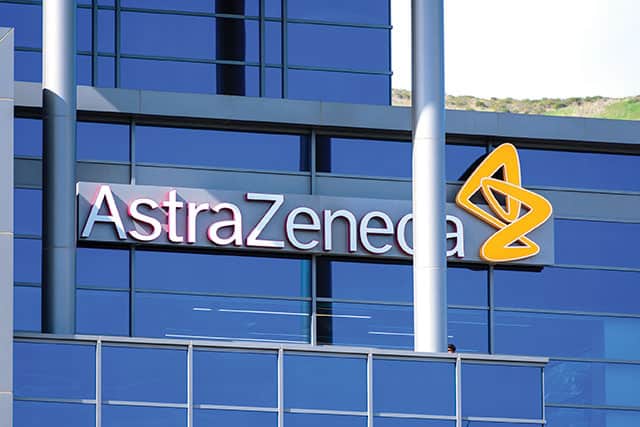
AstraZeneca’s (AZ) Imfinzi (durvalumab) has been approved by the Medicines and Healthcare products Regulatory Agency (MHRA) to treat biliary tract cancer (BTC) in combination with chemotherapy, the company announced.
The authorisation, which is specifically for adult patients with locally advanced, unresectable or metastatic BTC, was issued under Project Orbis, an international programme to speed up the approval process of promising cancer drugs.
BTC is a group of rare and aggressive gastrointestinal cancers that form in the cells of the bile ducts, gall bladder or ampulla of Vater (where the bile duct and pancreatic duct connect to the small intestine).
Around 50,000 people in Europe, the US and Japan and around 210,000 people worldwide are diagnosed with the disease each year. These patients face a poor prognosis, with approximately 5-15% of patients surviving for five years.
AstraZeneca’s application for Imfinzi in BTC was supported by results from its phase 3 TOPAZ-1 trial, in which the combination therapy demonstrated a clinically meaningful and durable overall survival (OS) benefit as a treatment for patients at an advanced stage of the disease.
Updated median OS was 12.9 months compared to 11.3 months with chemotherapy alone, and more than double the number of Imfinzi-treated patients were estimated to be alive at two years versus chemotherapy alone (23.6% versus 11.5%).
Data from the trial also show improved clinical efficacy after an additional 6.5 months of follow-up for Imfinzi plus chemotherapy, demonstrating a 24% reduction in the risk of death versus chemotherapy alone.
Results were seen across all prespecified subgroups, regardless of disease status, tumour location or PD-L1 expression.
Additionally, OS benefit was observed both in patients whose tumours stayed the same size, and in patients whose tumours got smaller or disappeared.
“This decision acknowledges the first improvement in outcomes for patients with advanced BTC in first-line treatment in over a decade,” said Professor John Bridgewater, clinical researcher at the University College London Cancer Institute, and medical oncologist.
Also commenting on the authorisation, AZ UK’s medical and scientific affairs director, Ed Piper, said: “We’re delighted that the approval of [Imfinzi] was achieved under Project Orbis, an innovative regulatory assessment pathway.
“We will continue to collaborate with NICE, the Scottish Medicines Consortium and NHS England to secure patient access at the earliest opportunity.”




